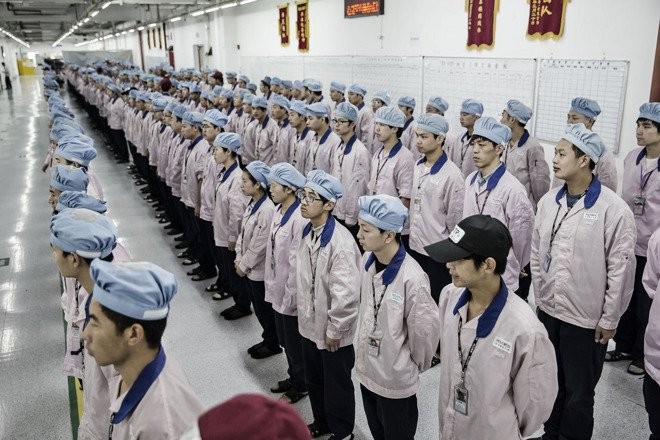A supplier for global tech giant is in hot water after a Chinese labor watchdog accused it of worker exploitation.
In its report, the China Labor Watch claimed that Taiwanese electronics company, which manufactures and supplies parts for Apple's iPhones, has underpaid its workers while making them work for longer hours than allowed by Chinese laws, ZDNet reported.
According to CLW, despite Pegatron paying its workers the legal minimum wage of $304 to $350 per month, their actual take ho9me pay ended up much lower due to deductions made by the company, including insurances, lodging, and other expenses. The group said that it discovered the discrepancy by studying over 2,000 payslips provided by employees.
The labor group also noted that the average wage in Shanghai, where the company's factory is located, $895 a month. However, Pegatron's workers only received $633 a month despite accumulating 90 hours of overtime.
The CLW also discovered that people working in departments where more man hours are needed ended up having excessive overtimes. An analysis of the company's payroll records conducted by the group in March showed that one employee even logging in 109 hours of overtime in a month, which is well beyond the legal limit of just 36.
Employees putting in too much overtime was again attributed to them trying to earn more out of their small wages.
Other exploitative practices that the CLW discovered included employees being required to come in 10 minutes earlier than their shifts, which is not accordingly recorded in the pay. They are also required to undergo a 60-minute security check before entering, which is then taken from their rest period.
While Apple does not have a share on Pegatron, the CLW asserted that the latter's actions are still the former's responsibility, as it has the resources to make improvements in its suppliers' labor practices, the Business Insider reported.
According to CLW executive director Li Quang, Apple's inaction on the matter could severely hinder efforts to improve working conditions in the smartphone industry.



























